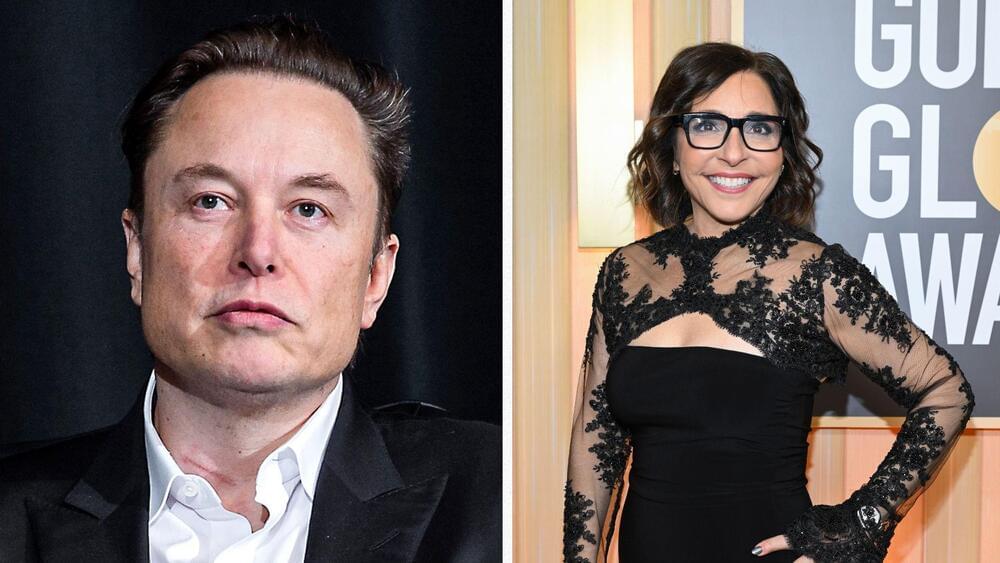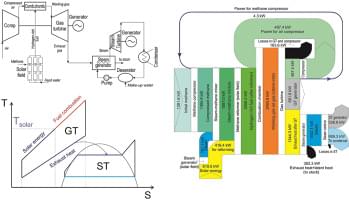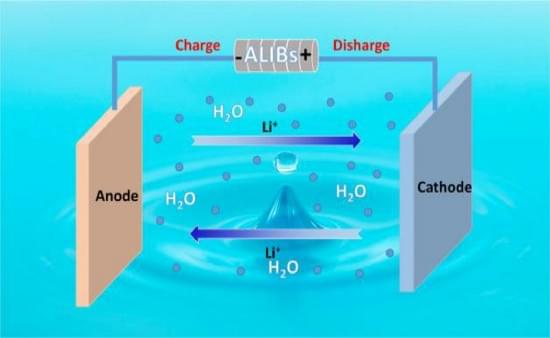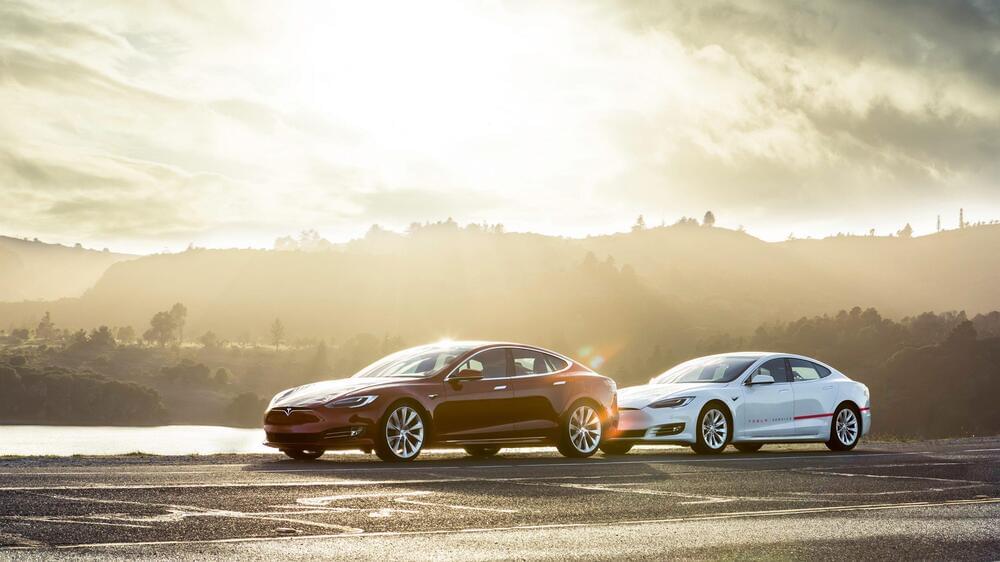The robot can drive heavy steal beams into the ground at a rate of 1 per 73 seconds, which will help expedite solar farm construction.
Category: sustainability – Page 253

Musk hires new Twitter CEO to start role in roughly 6 weeks
Rumor has it that NBC Universal executive Linda Yaccarino is lined up to take the role.
Elon Musk is finally ready to let go of the CEO role at Twitter as he announced the appointment of a new CEO at the company. Musk will take on the role of the CTO and oversee product, software, and sysops, he said in a tweet.
Musk, who is also the CEO of other companies such as Tesla and SpaceX, has been under pressure to dedicate more time to these companies. The Tesla stock price dropped significantly after Musk took over Twitter in a $44 billion purchase last year.
Hydromea Wireless Underwater Drones
The Hydromea Exray wireless drone is an underwater drone that uses optics instead of cables for many effortless applications.
Donate to Paypal…[email protected].
https://www.facebook.com/BeholdFuture.
Automating remote, inspection and monitoring of submerged assets.
CUT THE CORD
At Hydromea, they believe that the restrictive underwater robotics space requires a paradigm shift to help the rapidly growing Ocean Economy become greener, more sustainable agent on our planet and at a price point that is affordable and scalable.
Hydromea are convinced that investing in hardware and software technologies that allow us to CUT THE CORD is the necessary and much awaited step towards this direction. With that, we disrupt the underwater inspection and monitoring market, making it significantly more efficient and affordable, enabling unprecedented access to submerged assets, never available before. Join us and be a part of the underwater robotics revolution!

Integrated solar combined cycle system with steam methane reforming: Thermodynamic analysis
A transition to a carbon-free economy is the reality of the modern energy industry. Reduction in CO2 emission is one of the main challenge in energy engineering in the last decades. Renewable energy sources are playing an important role on the way to a zero-carbon economy [1,2]. Solar energy is one of the main and almost unlimited energy sources in the World. The different technologies of solar energy use have been developed in the last years [[3], [4], [5], [6], [7], [8]]. However, even though the progress in the development of solar energy technologies is notable, there are a lot of challenges for energy science. One of them is the fact that more than 60% of electricity is produced by conventional technologies via hydrocarbon fuel combustion: steam turbines, gas turbines, etc. While the share of electricity produced by using solar energy is no more than a few percent [9].
Among various ways of utilization of solar energy for electricity generation, a combination of solar energy with the traditional steam and gas turbine cycles can be highlighted. The power plants where solar energy is combined with conventional power cycles are named integrated solar combined cycle systems (ISCCS). In these systems, solar energy is used to produce heat and after that heat is used to generate mechanical work or electricity.
Combined cycle power plants (CCPP) show one of the highest energy efficiency among conventional power plants [10]. The modern cycles with high-temperature gas turbines have an efficiency up to 70% and even higher. In such cycles, the high-temperature gas turbines with the turbine inlet temperature (TIT) up to 1,600 °C are applied [11,12]. In the last years, a lot of various integrated solar combined cycle systems (ISCCS) were developed by various scientists and engineers. The main way to use solar energy in such cycles is a steam generation in CCPP [[13], [14], [15], [16]]. In other words, solar energy in such ISCCS is utilized as an energy source in a steam turbine cycle.


Aqueos Lithium-Ion Batteries Won’t Catch on Fire — So Why Aren’t They the EV Gold Standard?
An aqueous lithium-ion battery would be safer than the ones being used in EVs today. So why aren’t car companies switching to it?
In the meantime, aqueous Li-ion technology is finding niche uses where limited resilience and longevity are less of an issue such as for the military.
Aqueous Li-ion Recyclability
If the fire and explosion issues aren’t enough to give battery developers reasons to look at other improvements, recyclability to reduce pollution should be high on the list. An aqueous Li-ion battery eliminates the use of toxic materials that require invasive and destructive methods to mine and transform for manufacturing. The processes are currently so complex and expensive that recycling Li-ion batteries is largely not done by companies that use them in EVs and other devices. Only recently have specialized Li-ion recyclers emerged like Li-Cycle, a Canadian-based company that announced the building of a new European recycling hub a few days ago. Changing the technology to aqueous Li-ion would make the job of recycling companies and the reuse of the recovered materials far more attractive.

Exclusive: Bill Gates on the future of nuclear energy, AI
TerraPower, founded by billionaire and Microsoft co-founder Bill Gates in 2008, is opening a new nuclear power plant in Kemmerer, Wyoming. The plant will be the first of its kind, with the company hoping to revolutionize the nuclear energy industry in the U.S. to help fight climate change and support American energy independence.
“Nuclear energy, if we do it right, will help us solve our climate goals,” Gates told ABC News. “That is, get rid of the greenhouse gas emissions without making the electricity system far more expensive or less reliable.”
Gates met with ABC News’ chief business, economics, and technology correspondent Rebecca Jarvis in Kemmerer to talk about the project.
Top 10 Things You Should Know About Fusion — March 2019
This is really for the general public — and for people new to fusion. I gave a 20 minute talk** to a local group in Pittsburgh. We decided to record the audio, and put it out on the web for other people to enjoy. The top Ten things you should know about fusion are:
10. We have Been Doing It For Years.
9. We Know How To Make It Work.
8. You Can Do Fusion At Home.
7. The US Really Funded Fusion For about 15 year.
6. There Is More Than One Method.
5. Fusion Startups Are Real.
4. We Need A Pipeline.
3. China Is Taking An Interest.
2. Superconductors Are Game Changers.
1. Climate Change Is Not Waiting.
** Edits:
1. When I say 8, I meant 9
2. To clarify: ENN is investing ~10 million to built a duplicate of Dr. Cohens’ machine over in China. They’ve staffed up over there.

Space for All, on Earth and Beyond
Space Renaissance International has recently launched a world-wide campaign for adding an 18th SDG to the United Nations 2030 Agenda for sustainable development. Our initiative suddenly resulted to be in tune with similar initiatives, undertaken by other space advocacy organizations, e.g. the National Space Society of USA, and many others. All of these promoter organizations are now working to a joined campaign. Two initial milestones will be the presentation, by the NSS, of the #Space18SDG to the COPUOS (the United Nations Committee for the Peaceful Use of Outer Space) the first week of June, and a panel organized by SRI at the UN General Assembly in New York, for the 18 of September.
Space for All, on Earth and Beyond, a civilian-led space development, with human communities living and working in outer space to expand and multiply benefits to all the peoples of Earth.
The above is the main concept supporting our proposal, trying to make it evident, in few words, that, though we praise and consider very important the huge contribution so far given by space technologies to the achievement of the Earthly 17 SDGs, we think that they will not be enough to overcome the global crisis of human development on our mother planet, should humanity remain closed and confined inside its limits.

Tesla asked about its points for improvement — the EV community delivered
Elon Musk has been pretty open about the idea of using social media platforms like Twitter to communicate directly with customers. Tesla highlighted this in its 2022 Impact Report, with the company noting that its social media accounts have helped it reach 1 billion views on Twitter last year.
With Twitter now being owned by Elon Musk, it is no surprise that his companies like Tesla are now more active on the platform. And in a recent post, the official Tesla account asked Twitter users what it could improve. The EV community, from fans to longtime owners, responded, to a great degree. As of writing, Tesla’s post has attracted over 22k comments.
A look at the comments on Tesla’s post would show that there are numerous calls for better service. Service has been Tesla’s Achilles heel for some time now, and with the company adopting a “best service is no service” stance, some owners have reported experiencing difficulties contacting Tesla for issues with their vehicles. Comments on Tesla’s post suggest that customer service is still a key point of improvement for the company.